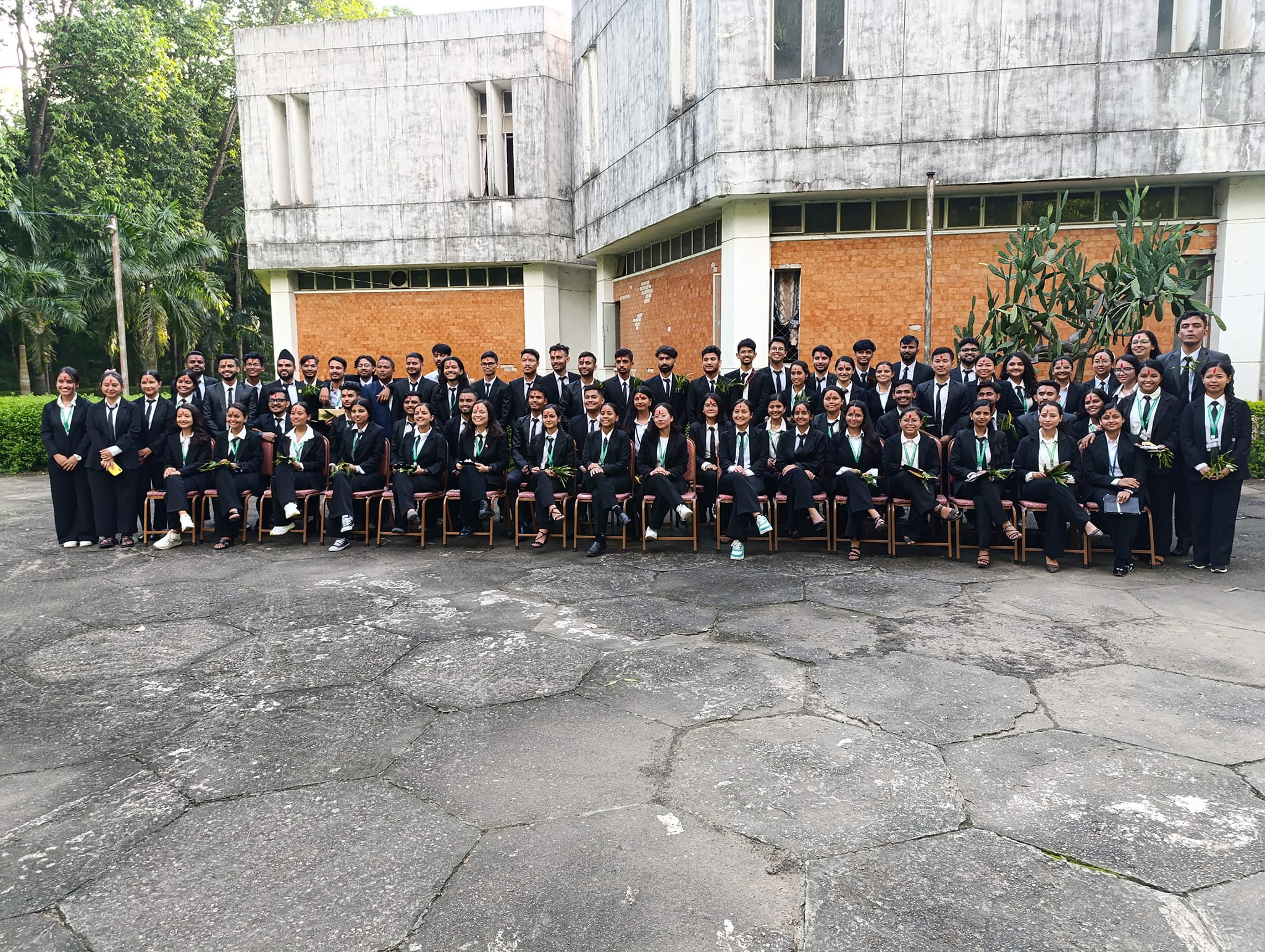Overview
The Institute of Forestry, Hetauda Campus (IOF-HC) has been shaping Nepal’s forestry education for more than seven decades. What began in 1947 as the Nepal Forestry Institute in Kathmandu later moved to Supping (Bhim Phedi) in 1957, before finding its permanent home in Hetauda in 1965. It is located on Main Road, Hetauda, Makwanpur, Bagmati Pradesh, Nepal.
Today, IOF Hetauda Campus stands as a hub for learning, research, and innovation in Forestry and Natural Resource Management. Its affiliation with Tribhuvan University and partnerships with global organizations like the World Bank, ICA, and USAID have helped it grow into a trusted name in forestry education, both in Nepal and abroad.

A Journey of Growth
The institute was first set up under the Department of Forest and officially became part of Tribhuvan University in 1972, taking the name Institute of Forestry. Since 1981, the Hetauda Campus has been offering a two-year certificate course in Forestry.
As Nepal’s need for trained forestry professionals expanded, so did the campus. Over the years, IOF-HC has broadened its programs to prepare students for the complex challenges of managing forests and natural resources.
In 2004, the campus stepped into a new era by launching Master’s (MSc) and Ph.D. programs in Forestry. The doctoral program is open to researchers from diverse fields within forestry, with a strong emphasis on practical, research-driven learning.
Students here can explore a wide range of subjects, including:
-
Forest and Wildlife Management
-
Community Forestry
-
Agroforestry
-
Ecotourism and Recreation
-
Environmental Science
-
Protected Area Management
-
Soil Conservation and Watershed Management
This variety ensures that graduates are not only knowledgeable but also well-equipped to apply their skills in real-world contexts.
Academic Strength
What makes IOF-HC unique is its blend of tradition and innovation. It provides a strong academic foundation while keeping pace with modern environmental challenges.
The campus has built a reputation for producing professionals who are technically skilled, socially responsible, and deeply committed to sustainability. Students don’t just study forestry here—they learn to understand the vital connection between people and nature.
Research and Global Impact
Research is a cornerstone of the institute. Faculty and students work on projects that address issues ranging from biodiversity conservation to sustainable resource use. Many of these studies have earned recognition both nationally and internationally.
Because of this, IOF-HC graduates are highly sought after—whether in Nepal’s forestry sector, in NGOs, or in international organizations. The campus continues to be a reliable source of expertise, producing leaders who make an impact in communities and ecosystems alike.

State-of-the-Art Facilities
Hostel
Life at IOF-HC isn’t just about classrooms—it’s also about where you live. The campus hostels give students a safe, comfortable, and friendly space to call home. With a supportive environment and a strong sense of community, students can focus on their studies while also building friendships that last long after graduation.
Library
The library is the heart of the campus. It’s a quiet, welcoming place where students can dive into thousands of books, journals, and digital resources. Whether you’re preparing for exams or exploring a new research idea, the library has the tools you need—and the staff are always happy to help you find them.
Museum
One of the unique features of IOF-HC is its forestry museum. Here, students can see real-life specimens, artifacts, and exhibits that bring forestry and conservation to life. It’s more than just displays—it’s a hands-on way to connect theory with practice and understand the living history of Nepal’s forests.
Auditorium and Conference Halls
The campus has modern auditoriums and conference halls where learning goes beyond textbooks. These spaces host guest lectures, seminars, and academic events that allow students to interact with experts, share their own ideas, and be part of important discussions shaping forestry and natural resource management.
Sports Facilities
Education at IOF-HC values balance. Alongside academics, the campus provides sports grounds, courts, and indoor facilities where students can play, stay active, and recharge. Sports are a great way to de-stress, stay healthy, and build teamwork—an essential skill in both personal and professional life.
Offered Programs
The Institute of Forestry, Hetauda Campus, under Tribhuvan University, offers two main programs in forestry. Both are designed to give students a strong academic base along with the practical experiences they need to work in forests, communities, and research fields.
Bachelor of Science (BSc) in Forestry
The BSc in Forestry is a four-year undergraduate program that helps students understand forests, biodiversity, and the role of natural resources in people’s lives. Along with classroom study, the course emphasizes practical training in the field. Students take part in field visits, research projects, and hands-on learning that prepare them for real challenges in forest management and conservation.
Each year, 80 students are admitted into this program. Many of them go on to work in areas such as forest management, wildlife protection, community forestry, or further studies in environmental science. It is a program well-suited for anyone who wants to combine their education with a strong sense of responsibility toward nature.
Master of Science (MSc) in Forestry
The MSc in Forestry is for students who want to explore forestry in greater depth and focus on specialized areas. This program covers advanced topics like biodiversity conservation, ecosystem management, watershed protection, and sustainable use of resources. Students also carry out research that connects academic knowledge with pressing environmental issues.
There are 25 seats available for this course. Graduates of the MSc program often move into leadership roles in government agencies, NGOs, research institutions, or international organizations, where they contribute to planning, policy-making, and sustainable development.
Both the BSc and MSc programs aim to prepare graduates who can respond to Nepal’s changing forestry needs. From protecting biodiversity to supporting local communities and addressing global environmental concerns, these programs give students the knowledge and confidence to make a meaningful impact.
Contact the Institute of Forestry Hetauda Campus's administrative office for detailed information on the course, admissions, location, fees, scholarships, facilities, counseling, or eligibility.














You need to login to comment.